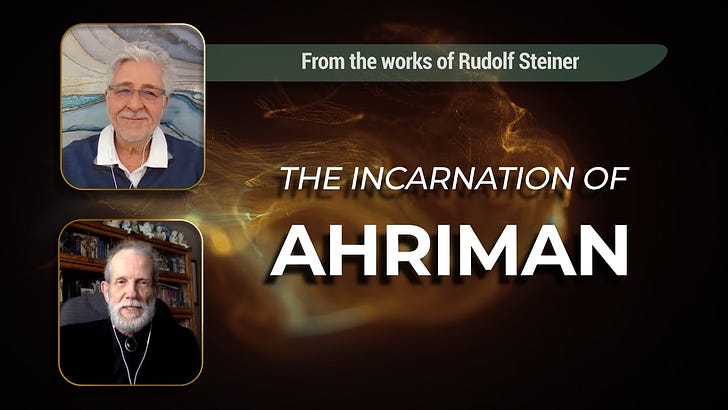Each book that we release will have two accompanying videos where John Barnwell and Douglas Gabriel discuss the topic and give you their insights about March’s featured book, The Incarnation of Ahriman.
In April, we will be releasing two videos from the book Surviving the Apocalypse. In May, the book of the month is Grappling with Evil.
Incarnation of Ahriman
.




Dear John and Douglas,
As truth seekers and sharerswhat is your opinion on this comment from here:
https://www.youtube.com/watch?v=GEScYxxRxSA
Re this statement.
"The name “Sons of Korah” comes from a group of Old Testament Levitical
musicians to whom at least 13 of the Psalms are attributed. The original
Sons of Korah were responsible for the ministry of music and song in the
Old Testament worship and particularly with the musical composition and
performance of the psalms.
What follows is the remarkable story of this family according to the
brief records of the Bible.
The Story of the Sons of Korah is a wonderful story of God’s grace. In
the Old Testament text of the Psalms reference is made to those who were
involved in the composition of the psalms. Psalms 42 to 49 as well as
Psalms 84 to 88 are attributed to a group known as the “Sons of Korah”
(see the small print titles under the numbers of the psalms). It appears
that this family of musicians were descendants of the same Korah who led
a rebellion against Moses in the desert (Numbers 16). This was a serious
crime that led to serious consequences for all those involved. We read
that God caused the ground to open up and swallow all those who were
involved in the rebellion along with their families (vs31ff).
The idea of a judgement like this that involved the wiping out of the
rebels as well as their families was that the line of the rebellious
should not continue in the earth. It is therefore quite surprising that
in Numbers 26:11 we read the words: “The line of Korah, however, did not
die out.” And sure enough as we follow the genealogies through
Chronicles we see that that the line of Korah did indeed continue.
According to 1 Chronicles 6:31ff, David, when he was organising the
different tasks for the temple worship, assigned the ministry of song
for a large part to the Kohathites. The head of this group was Heman who
is the writer of Psalm 88 and more significantly is a direct descendant
of Korah the Kohathite. Hence the psalm is also attributed to the Sons
of Korah.
It seems that at some point this musical family came to be called after
their rebellious forefather. Korah was an infamous historical figure in
the Israelite consciousness, remembered as an example of rebellion
against God. To be related to him would have been a notable thing,
though not necessarily a negative thing. The continuing existence of
this family line was a testimony to the grace of God who, although he
would be right to wipe out the memory of sinful men from the earth, is
nevertheless forgiving and whose heart is always for restoration and
redemption rather than for destruction. The Sons of Korah were therefore
a living testimony to God’s grace. They certainly had much to sing
about. We feel the same way.
Sons of Korah"
My question is: were "The Sons of Korah therefore a living testimony to God’s grace." ?
- or something else?